Audre Lorde - The Berlin Years 1984 to 1992
February 2018 Newsletter • ENG / DEU • UNSUBSCRIBE
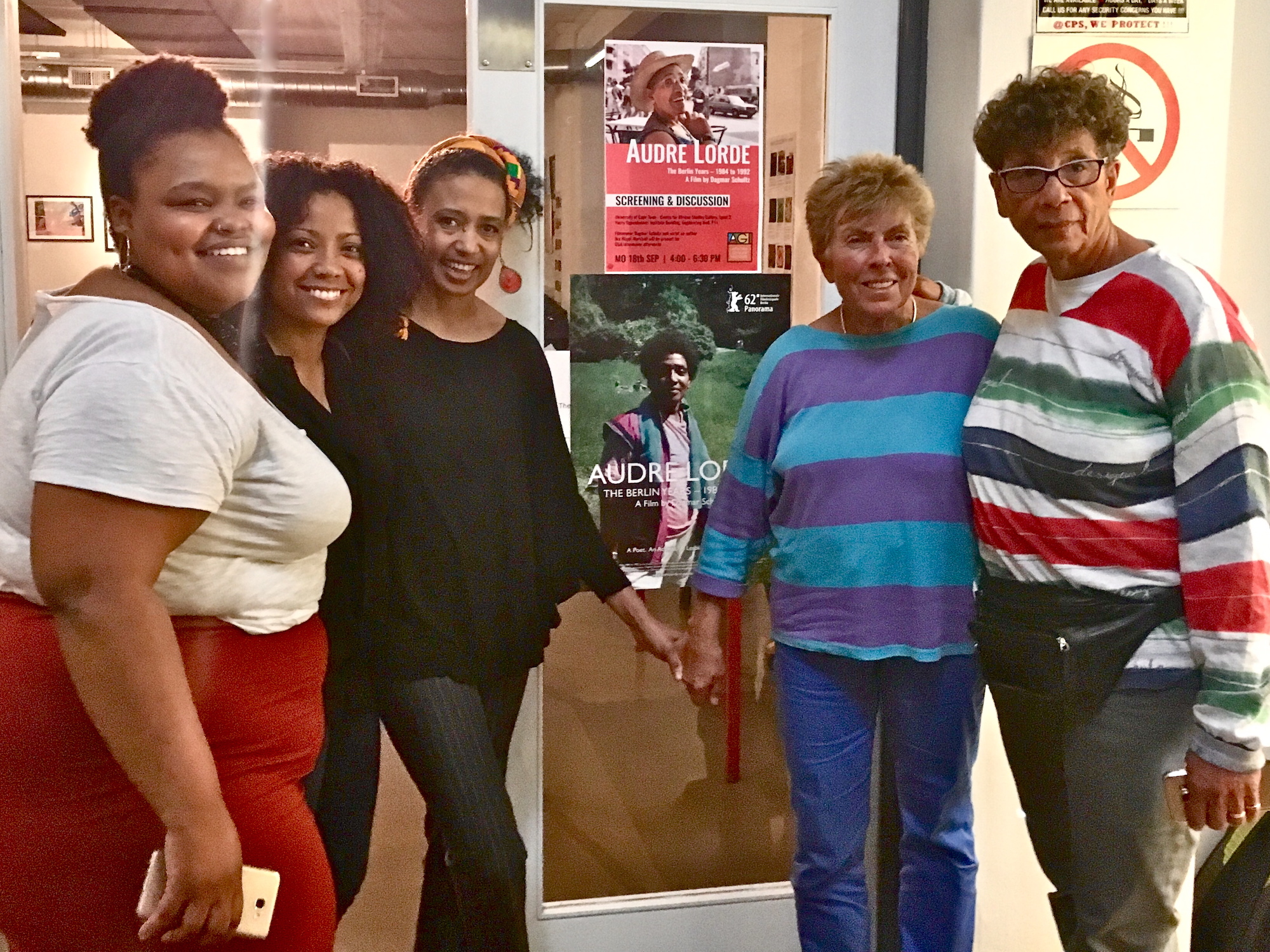 Audre Lorde is traveling the world with our film! In our last newsletter we reported on the extensive screenings in Mexico, on screenings with simultaneous Arabic translation in Berlin and on screenings in France and the US: http://www.audrelorde-theberlinyears.com/emails/2017_Aug.html.
Audre Lorde is traveling the world with our film! In our last newsletter we reported on the extensive screenings in Mexico, on screenings with simultaneous Arabic translation in Berlin and on screenings in France and the US: http://www.audrelorde-theberlinyears.com/emails/2017_Aug.html.
Today we want to give you a review of exciting screenings in South Africa, Namibia, Colombia, the Basque country in Spain, Austria and Italy—not to forget the regular screenings each third Monday at Lichtblick Kino, in Berlin. Screenings were usually combined with workshops and discussions. Take a look at the videos of poetry performances in Windhoek and in Bogota!
-
Cape Town, South Africa: 19/09/2017
-
University of the Witwatersrand, Johannesburg, South Africa: 20/09/2017
-
Windhoek, Namibia: 28/09/201717
-
Vienna, Austria: 17/10/2017
-
Palermo, Italy: 18/10/2017
-
Arrasate, Basque country in Spain: 30/11/2017
-
Bogotá, Columbia: 30/11/2017
-
Khayelitsha, Cape Town, South Africa: 19/01/2018
-
Also check out the playlists with many videos on Audre Lorde in Berlin and interviews with Gloria Joseph and with viewers of the film: https://www.youtube.com
Cape Town. In September we had a lively discussion with students, faculty and community people after the screening of the film at the African Gender Institute of Cape Town University. Lameez Lalkhen, administrator at the University of the Western Cape, organized a screening for faculty, friends and students at professor Jane Taylor’s house in coastal Simons Town.
University of the Witwatersrand. While we were in Cape Town, the film was also shown at the University of the Witwatersrand in Johannesburg. Here an excerpt of the report by Vu Michelle Horwitz teaching a third year Fine Art course titled Reading the Contemporary: Strategies for Survival. The full version you find under film comments on the website.
“…the screening on Sept. 20 was a roaring success! ...There were cheers and cries throughout the screening, and almost each student had a question or comment for afterwards.…these are third year Fine Art students who have never before been introduced to nor grappled with queer or radical theories in an academic context. This course is their first gateway to the kinds of ideas and ways of thinking both Audre, and films like yours, exemplify.
…So thank you so much for making the path of educator so much easier and clearer - please continue with everything you are doing!…“
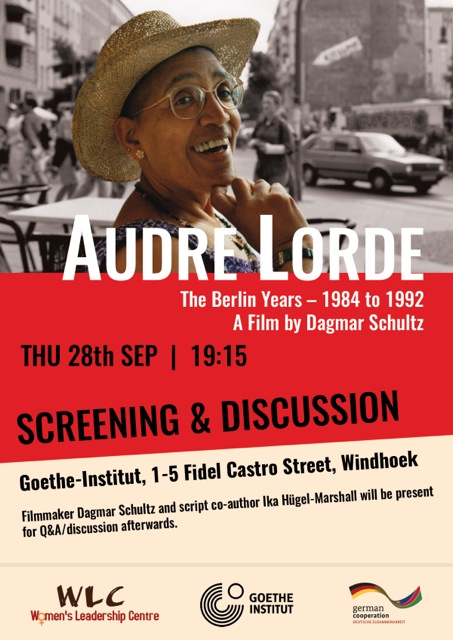 |
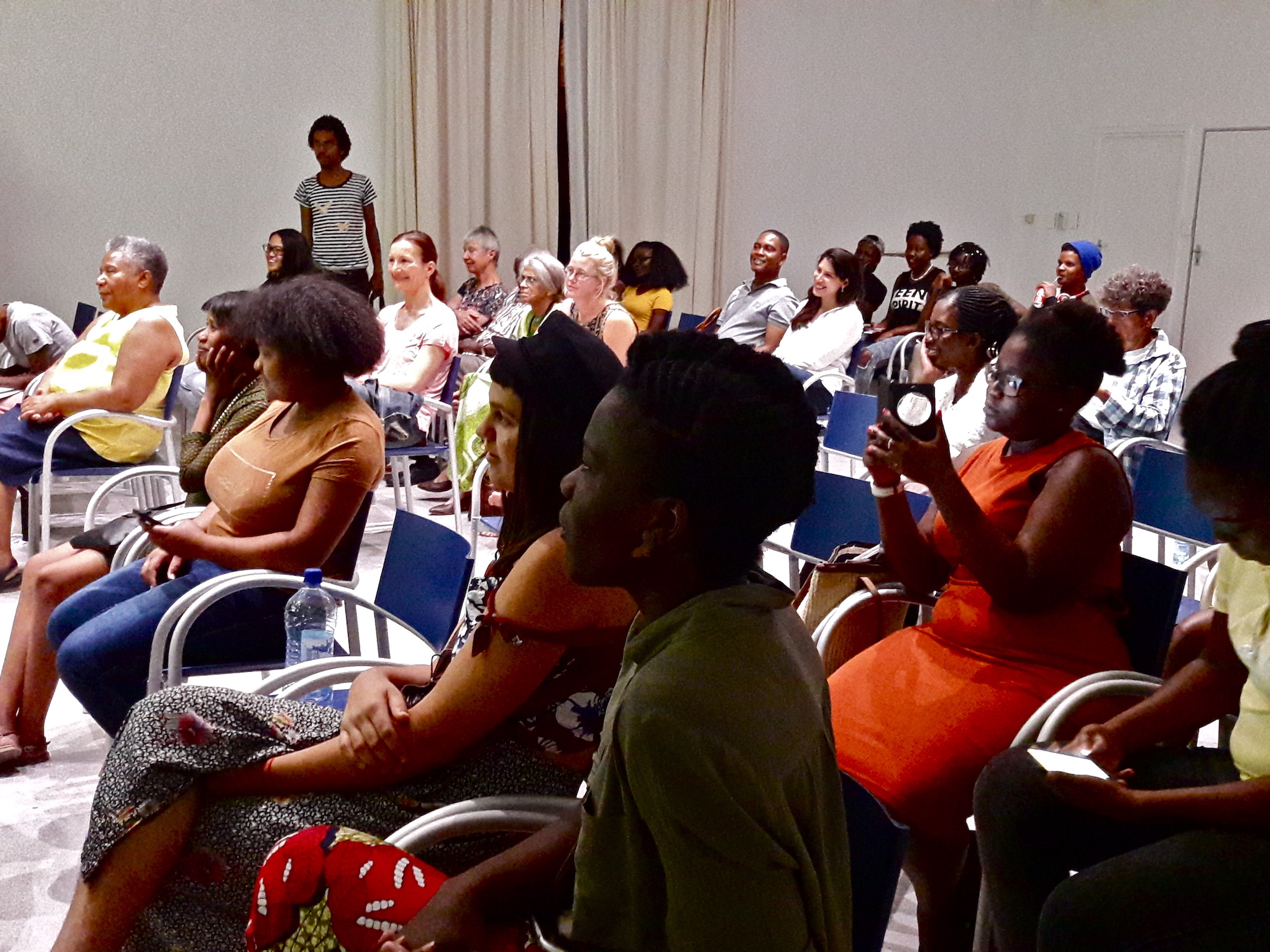 |
Windhoek. In Windhoek, Namibia, we had two events at the Goethe Institut: Ika Hügel-Marshall gave a reading from her book Invisible Woman. Growing Up Black In Germany and we showed the film. The screening was introduced by a poetry performance of young Namibian lesbians. They were also active in the first Namibian Lesbian Festival which took place later in November. Here a taste of their performance:
Vienna. Valentina Duelli wrote after the screening:
“The evening was a full success! The hall was so full that we had to add extra chairs – 90 seats all together!
The ensuing discussion was very engaging, and about 60 persons were present for that.
Many many thanks to the good cooperation and the inspiring film! We had so much positive feedback, it was really a beautiful evening.“
Palermo. Margherita Giacobino, novelist and translator of Audre Lorde’s essays, led the discussion at the screening in Palermo, Italy. She writes:
“We screened your film in the Casa Mediterranea delle Donne (The Mediterranean House of Women, the seat of many women’s group in Palermo) in front of a warm and participative audience.”
Arrasate. This was the first screening in the Basque country in Spain. Arantza Beitia Jimenez sent us posters and cards on Audre in the Basque and the Spanish language. She writes:
“We have organized the projection as a part of a course of feminism. The screening was well received! Here some examples of the work done with Audre’s poetry in Spanish and in Basque. Basque people are a bilingual. We have two official languages: Basque and Spanish. I think it is interesting for you to know that Audre Lorde has also been translated into Basque, one of the oldest language in Europe, probably the oldest one, as it existed before Latin. I think she would be proud about it.“
 |
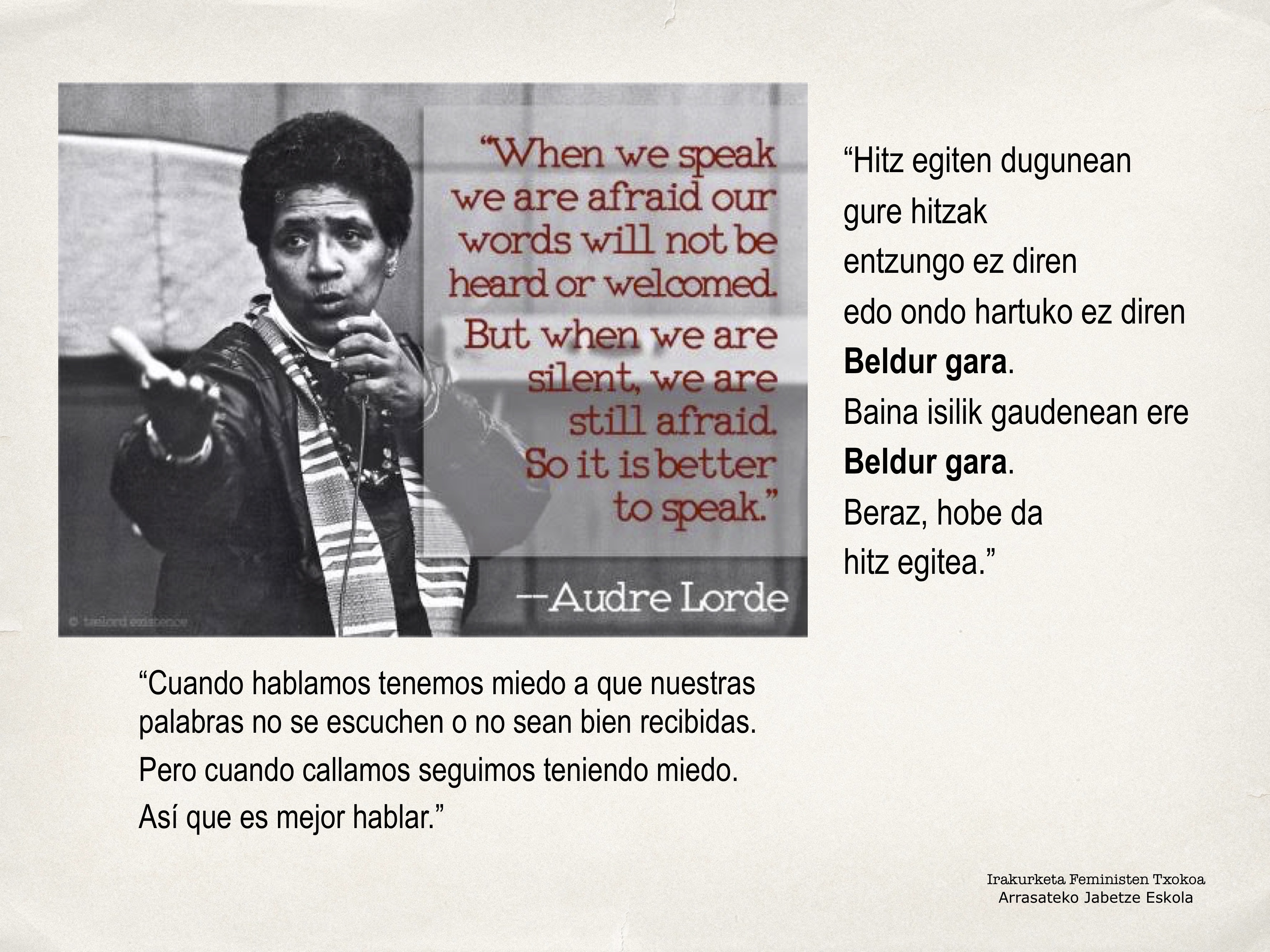 |
Bogota. Mayra Rodriguez Castro, who had seen the film in Berlin and organized a screening at the Goethe Institut in Bogota, gave the following report. We print it completely because it also gives an idea of feminist activism in Colombia:
“We had a beautiful screening! The weather was good so we managed to project the film open-air. It was a full house and several women from Afro-Colombian activists groups came. We had a great evening. Women from several organizations joined us:
- AFRODES (Association Nacional de Afrocolombianos desplazados): The Association for displaced Afrocolombians defends the rights of black populations victims of violence, territorial displacement, and the armed conflict. http://www.afrodescolombia.org
- La Comadre (La coordinación de Mujeres Afrocolombianas Desplazadas en Resistencia): A division of AFRODES dedicated to the work of Black Women Resistance.
- CONPA (Consejo Nacional de Paz Afrocolombiano): An initiative to organize and collect the proposals of Afrocolombian populations regarding the peace agreement, which was signed by president Santos in 2016.
- Movilización de Mujeres Afrodescendientes por el Cuidado de la Vida y los Territorios Ancestrales: On November of 2014, 15 women walked from the region of Cauca in Colombia to the Administrative Capital in Bogotá. Their walk (of over 650km and 10 cities) protested illegal mining as well as land exploitation of territories where they grew up, and which they now cultivate for their own children. Black women joined this protest as it progressed throughout the country. The 15 organizers from Cauca are single mothers. http://mujeresnegrascaminan.com
- Foro sobre Feminicidios en Grupos Etnicos Racializados: A forum regarding violence against women in Black communities and marginal communities. In its first iteration on 2016, the forum offered lectures, spaces for exchange, and educational exercises on violence against women. http://forofeminicidios2016.blogspot.de/2016/07/relatoriageneral-del-foro-internacional.html
Pamela Sneed joined us from New York, sharing her poetry via Skype as an introduction to the film. She read poems from her upcoming book Sweet Dreams with Belladonna Press (see excerpt in video).
Also joined us, Mara Viveros Vigoya, head of the first Gender Studies department in Colombia at the National University. Mara is an Afrocolombian writer and professor, she presented her book Les coleurs de la masculinité. Expériences intersectionnelles et pratiques de pouvoir en Amérique latine at the IEC; Institut Emile du Châtelet.
Khayelitsha. To our great joy, the film’s activities have continued in South Africa: on January 19 of this year the film had its 71st festival at the First Queer Film Festival in Khayelitsha, Cape Town’s largest township!
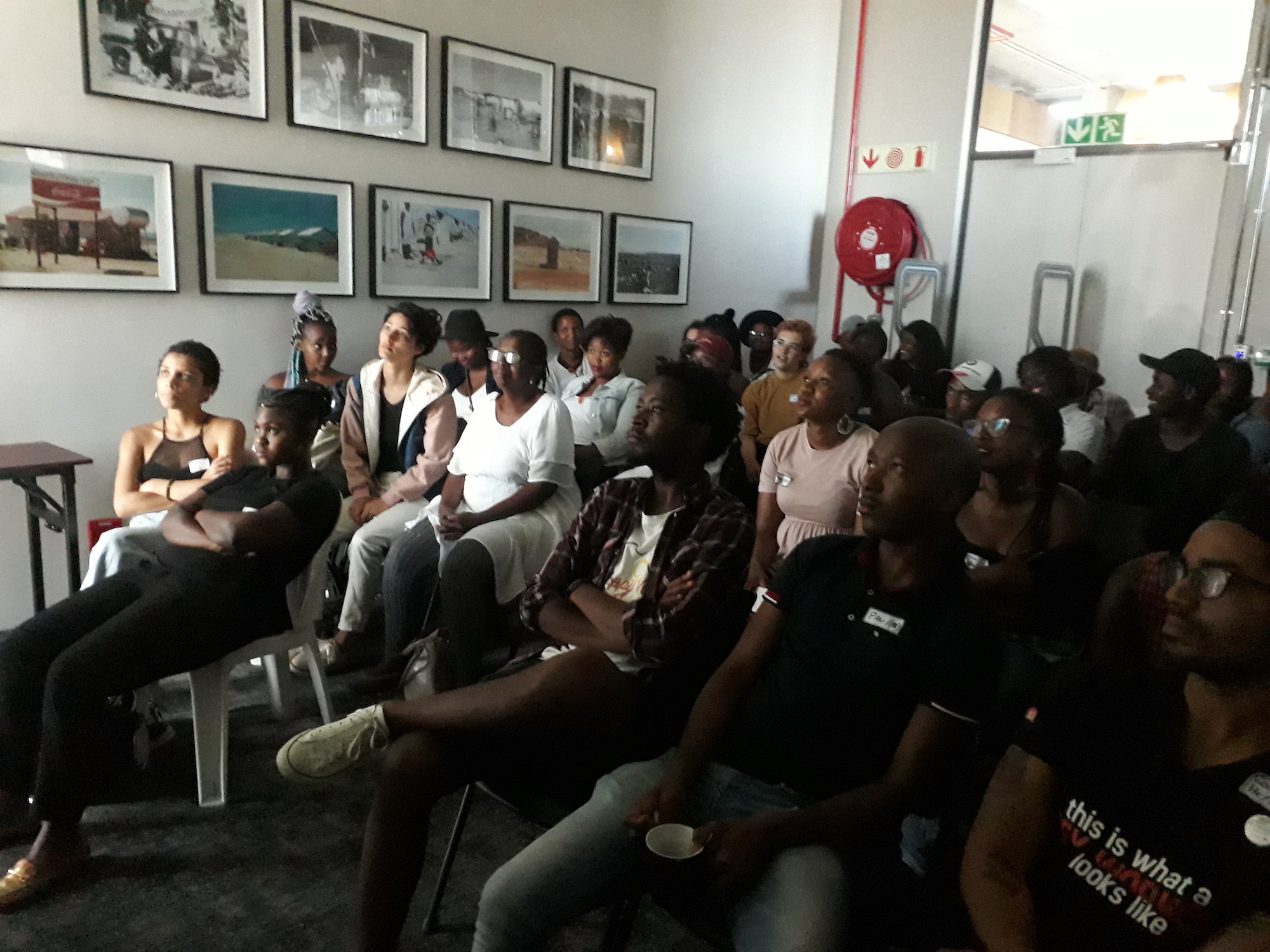 |
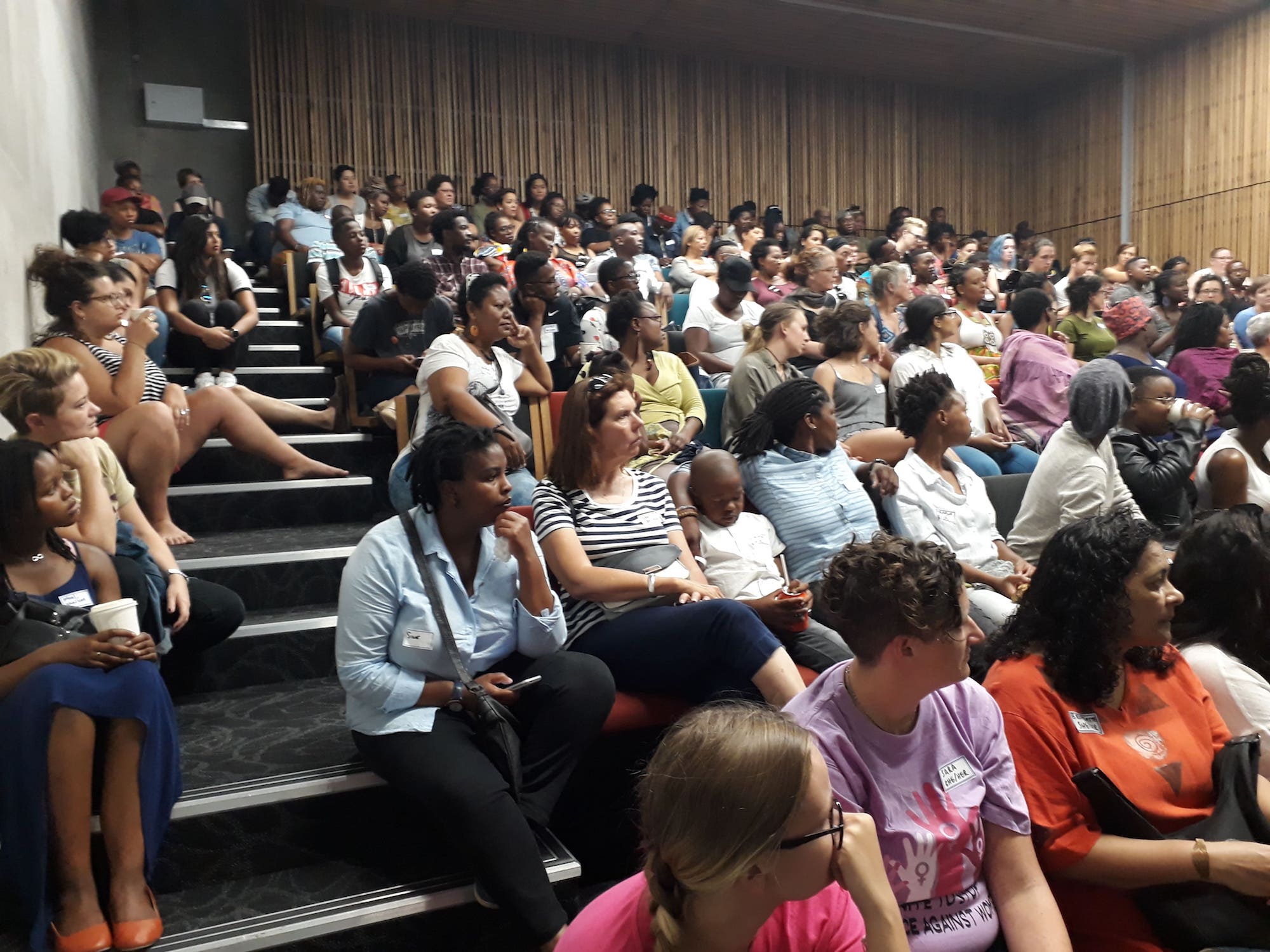 |
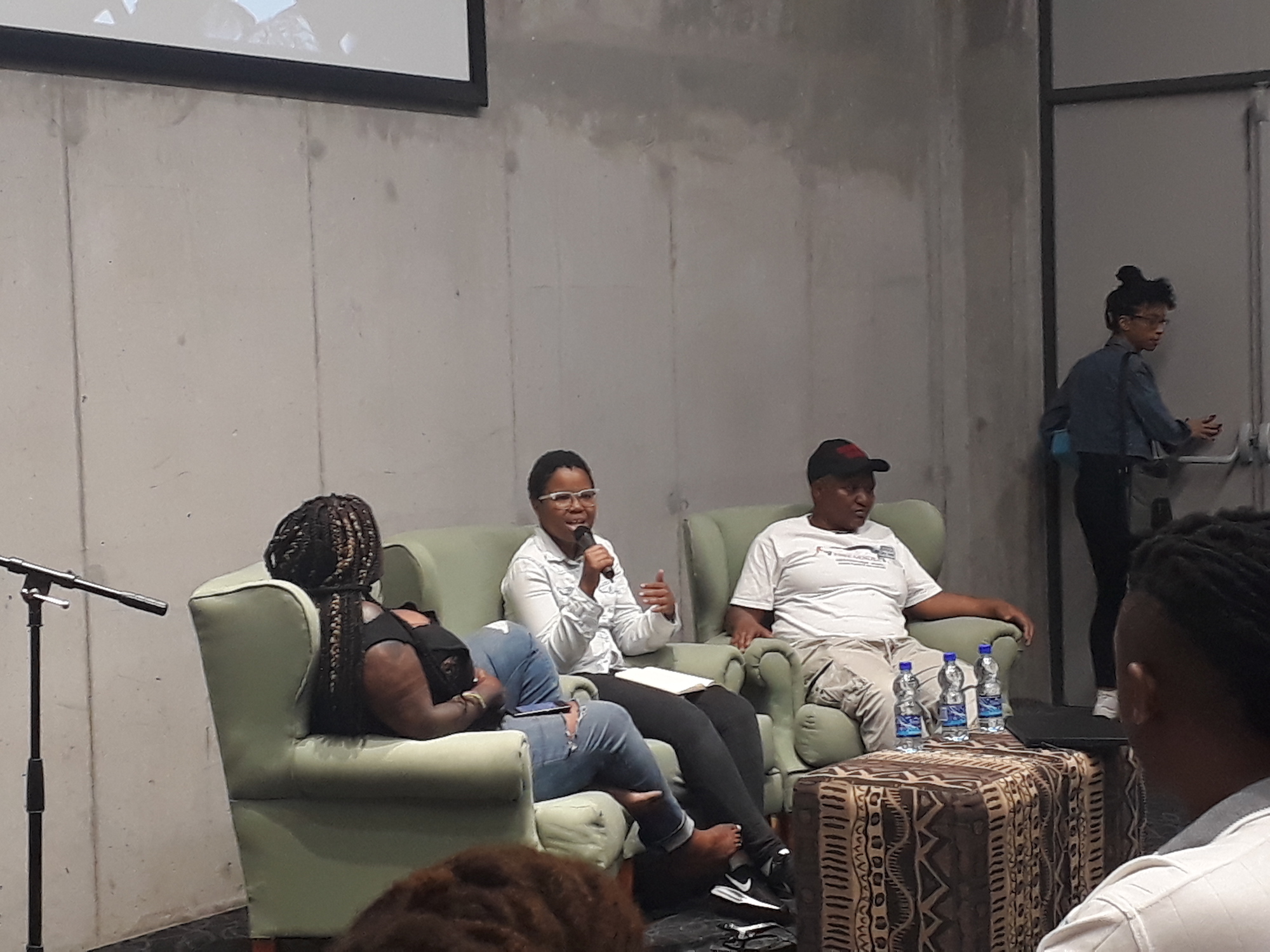 |
Organizer Kealeboga Ramaru sent this feedback on the screening:
“Folks were very excited to see Berlin Years and the debriefing session after was amazing. Folks shared their experiences of Audre's work and what the documentary means to them as organizers and activists.
We had quite a few people who have requested to watch it again and some wish to purchase copies for their own use. We would love to host another screening on campus.”
In these ways the film keeps contributing to Audre’s work as a source for resistance and resilience!
 What else is new? The
Audre Lorde in Berlin Online Journey (former title “City Tour”) now has a content list
under the menu link “website info” which allows you to choose
locations you want to visit and get there directly with one click!
This online journey is a great resource of text, photos, videos
and audios. It can also be used in teaching as a vivid introduction
to Audre Lorde in the Berlin of the 1980s and early 90s.
What else is new? The
Audre Lorde in Berlin Online Journey (former title “City Tour”) now has a content list
under the menu link “website info” which allows you to choose
locations you want to visit and get there directly with one click!
This online journey is a great resource of text, photos, videos
and audios. It can also be used in teaching as a vivid introduction
to Audre Lorde in the Berlin of the 1980s and early 90s.
You hear and see Audre recite poems and analyze one of her poems, you hear her talk about her relationship with Black Germans, encourage Afro-germans to write, give her view on the fall of the wall, on German racism and anti-semitism and on (white) feminism, discuss organizing with South-African author and activist Ellen Kuzwayo, offer us her political credo, reminisce on her childhood. Please use and promote this innovative project of archival activism! http://audrelordeberlin.com
Also check out the playlists with many videos on Audre Lorde in Berlin and interviews with Gloria Joseph and with viewers of the film: https://www.youtube.comDagmar Schultz
Click HERE to
purchase your North American DVD (NTSC) today. Click here to UNSUBSCRIBE from our e-mail list. Click here to read our PRIVACY POLICY.
The European DVD (PAL) is available from www.jcp.de.
The DVD is
in English with subtitles in German, French and Spanish.